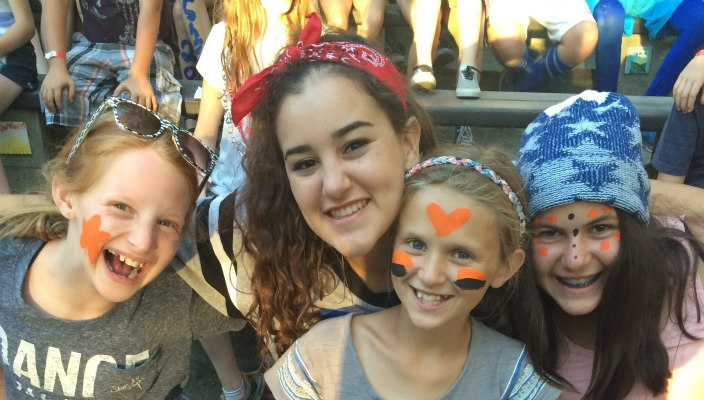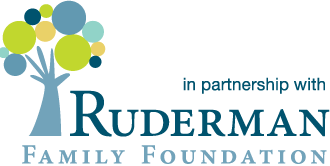This Successful Model for Inclusion Support Benefits Everyone Involved
02/16/2018
For the last 15 years, more than 250 teens in religious schools in greater Philadelphia have participated in the Reta Emerson Fellowship/Teen Assistant Program (TAP), supporting children with learning and/or developmental disabilities. As part of my work directing Whole Community Inclusion, I serve as the TAP coordinator.
The teens apply to the program through a process that requires recommendations and an essay about why they want to take on this unique challenge. Once accepted, they participate in a weeklong, intensive training about disability awareness and Jewish values, as well as learn skills to support students who have sensory integration issues, learning and attention challenges, and may need extra positive behavior support.
After training, they commit to working in their synagogue school weekly for the entire year. The teens also come to ongoing training sessions in which they can, with other TAP participants, process and reflect on their experience and troubleshoot any challenges that they’re experiencing. Some of the teens work one-on-one with a single student, some lead small groups, and some work with the teacher to help lend a hand as needed throughout the classroom. In addition to helping kids with learning, we also train the teens to understand social-emotional challenges, especially for children with autism who may not understand social rules as easily as their peers. Our teens are there to help integrate a child into a game at recess or model ways to hang out with a classmate.
TAP is a successful model for inclusion support because of the ways it benefits the teen participants, the schools, and the families of the students who benefit from TAP teens.
How it Benefits Teens
We capture the ways our teens grow by participating in TAP in both formal evaluations and from the teen’s own writings on our blog. Teens gain valuable leadership skills through the program, learning to communicate with the students they serve and the teachers they support. They take notice of their own peers with disabilities who often are isolated in their high school classrooms – and share stories about reaching out to them.
They write about participating in TAP for entrance into the National Honor Society and for their college essays. Some of the teens go on to study special education, various therapies, or become self-advocates who are comfortable sharing information about their own learning disabilities.
How it Benefits Schools
Increasingly, our Jewish schools are becoming more inclusive of students with learning differences, but we need to acknowledge that many of our teachers have no formal education training, let alone backgrounds in special education.
Having an extra person in the classroom helps – even more so if that person has some tools and resources to support students with disabilities. I frequently hear from education directors about the ways the TAP teens serve their students.
How it Benefits Families
We know that one in five families has a child with a disability, and this statistic translates to our Jewish community. In fact, because of Jewish genetic diseases, the numbers may be even higher. We know, too, that autism diagnoses have increased from one in 150 children 10 years ago to one in 68 children today.
Synagogue professionals need to find ways to communicate to our families that we will provide the resources to ensure their children get a Jewish education – and sharing about TAP teens has been a key step for educators in our community. Watch this mom share the story of the impact a TAP teen had on her son who has Down Syndrome, helping him participate fully in Hebrew school and become bar mitzvah.
For more information about TAP or to learn how you can set up a teen training program in your community, email Gabrielle Kaplan-Mayer.

